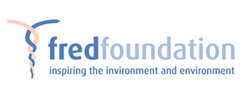Sweden takes toxics out of neonatal intensive care units
"No one, especially not premature babies, should be fed with phthalates"
25.11.2004 |Sascha Gabizon
Contacts:
Contact: Magnus Hedenmark
+ 46 8 70 472 88 55 regular phone
+46 70-472 88 55 cell phone
hedenmark@hcwh.org
Karolina Ruzickova
HCWH Europe
+420 222 78 28 08
+420 731 321 737 cell phone
karolina.ruzickova@hcwh.org
November 2004, Stockholm. Almost all neonatal intensive care units in Sweden stopped using feeding tubes containing a reproductive toxicant, shows the survey performed by the Swedish Society of Nature Conservation and HCWH.
Feeding tubes made of PVC may leak the hormone disrupting phthalate DEHP to the patients’ body. Medical doctors at the NICU of Södersjukhuset found out about the hazard posed by DEHP (bis (2-ethylhexyl) phthalate) four years ago.
(1) Since then, the majority of Swedish hospitals have stopped using PVC-tubing for premature babies. All 32 clinics have abandoned PVC tubing for long-term use. Only four remaining hospitals still use PVC/DEHP tubing for short-term use (20 minutes) for cost or technical reasons.
(2) “No one, especially premature babies, should be fed with phthalates,” said Mikael Karlsson, chairman of the SSNC. “The Swedish government should therefore immediately ban the use of PVC with phthalates in feeding tubes. Other hospitals have proven that there already exist viable substitutes.”
Other common medical devices with DEHP include IV-tubing and bags, catheters and devices for dialysis. “The Medical Products Agency of Sweden should investigate how much of phthalates are still used within Swedish hospitals, and support the government with a phase out program proposal. It is reasonable to demand that all hospitals should be free of phthalates within a four years period,” said Magnus Hedenmark of HCWH Sweden.
The issue of DEHP use in medical devices for neonates is also being discussed by the EU member states authorities and the European Commission. The recently finalised Risk Assessment on DEHP concluded that there is significant risk from using DEHP, especially for certain high-risk patient groups including children, neonates and patients undergoing repeated haemodialysis treatment. (3) For some of the applications there are alternatives available on the market for many years.
“The EU member states should act immediately and assist hospitals with eliminating the DEHP in the most risky applications that include transfusions in neonates. The restriction should be extended to other high-risk patient groups, including pregnant women and nursing mothers, because foetus is even more sensitive to the reproductive toxicity of DEHP,” said Karolina Ruzickova from HCWH Europe.
The phthalate DEHP is primarily used for softening PVC-plastics. DEHP is classifies as toxic to reproduction and may cause small testicles and malformations in rodent studies. Due to endocrine disrupting effects, the greatest risk is exposure for children and long-term patients.
Notes:
(1) An analysis of a PVC tubing showed a significant leakage of DEHP after use in Swedish Neonatal Intensive Care Units at Södersjukhuset in Stockholm, in 2000 .The feeding tubes were often exchanged due to achieved stiffness within 24-72 hours. The exposure was estimated to 30 mg/kg BW in 24 hours, and this corresponded to observed effect levels in rodent studies (Poon et al). Source:
Landstingsförbundet, (The Federation of Swedish County Councils). 2000. PVC in the Swedish healthcare system: current applications and new alternatives. Stockholm: Landstingsförbundet.
(2) A closer look showed that the NICUs of Kalmar hospital, Akademiska hospital in Uppsala, Norrlands university hospital and the university hospital of Linköping still use feeding tubing with DEHP for short-term procedures (less than 20 minutes). Most of the clinics were very much aware of the DEHP problems of enteral feeding. A fifth hospital within the Stockholm County Council had also bought a batch of phthalate-free PVC tubing for evaluation. Shortly after the announcement of the survey results, the hospital of Kalmar announced that they will stop the use of the
PVC-tubing immediately. “We do not want to worry people,” says the management.
(3) In 2004, the Risk Assessment on DEHP concluded that there is a need for specific legal measures in case of consumers, i.e. patients exposed to DEHP from medical devices. This conclusion is reached because of:
- concerns for testicular, fertility, developmental and repeated dose toxicity arising during long-term haemodialysis in adults
- concerns for testicular toxicity arising during long term blood transfusion in children
- concerns for testicular and fertility toxicity arising during transfusion in neonates
Links to Swedish media reporting this story:
http://www.sr.se/cgi-bin/kalmar/nyheter/artikel.asp?artikel=493855
Barometern
http://www2.unt.se/article/1,1786,MC=1-AV_ID=356265,00.html


































